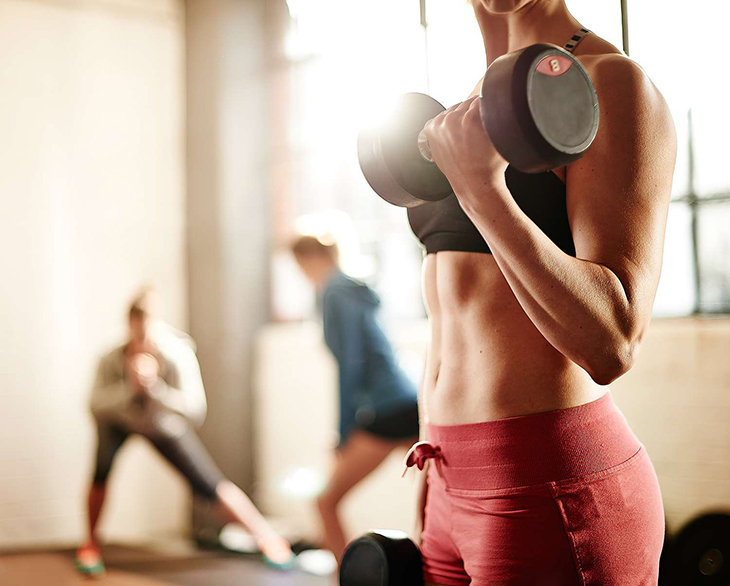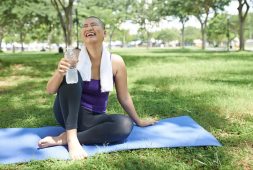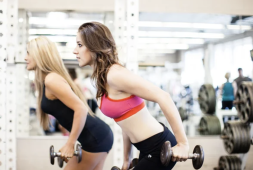
According to a recent study, wearing sunscreen while exercising outdoors is crucial as it could lead to clogged pores, acne, and dry patches.
Main Points:
- Foundation and Skin Health: When you exercise, your skin sweats as a natural cooling mechanism. However, wearing foundation creates a barrier that inhibits this process, trapping sweat and bacteria underneath. Consequently, this can upset the skin’s oil balance, leading to blockages in pores. These blockages, in turn, increase the likelihood of acne breakouts. Additionally, the prolonged presence of foundation can cause skin dryness, as it prevents proper hydration and air circulation.
- Eye Makeup Challenges: Mascara and eyeliner are particularly problematic during workouts due to the sensitive nature of the eye area. Sweat, combined with makeup residue, can irritate the eyes, causing discomfort such as itching and redness. In some cases, this can escalate to more severe reactions, including rashes and allergic responses. Furthermore, the movement and friction involved in exercise can cause makeup particles to enter the eyes, potentially leading to irritation or even corneal abrasions.
- Finding Balance for Confidence: While makeup can boost confidence and motivation for some individuals during gym sessions, it’s essential to find a balance that prioritizes skin health. Opting for “noncomedogenic” foundations is a proactive step, as these products are formulated to minimize pore blockages and reduce the risk of acne formation. Additionally, promptly cleansing the face after exercising helps remove sweat, dirt, and makeup residue, allowing the skin to breathe and recover more effectively. By incorporating these practices, individuals can enjoy the benefits of makeup while minimizing the potential adverse effects on skin health.
In a research endeavor, a group of 43 healthy male and female college students participated in a controlled experiment involving 20-minute treadmill sessions within a laboratory setting. Prior to engaging in physical activity, the participants were instructed to apply cream foundation to one half of their face—specifically, the forehead and upper cheek—while leaving the other half devoid of any makeup.
Upon completion of their workouts, an intriguing observation emerged: both sides of the participants’ faces exhibited an increase in moisture levels. However, the areas where makeup had been applied showed a more pronounced elevation in moisture content. These findings, documented in the Journal of Cosmetic Dermatology, shed light on a potentially significant implication.
Notably, the study revealed contrasting effects on the skin’s physiology based on makeup application. While pores on the makeup-free skin expanded and oil levels surged, the pores in the makeup-covered regions remained unchanged, and oil levels actually decreased. This divergence implies that wearing makeup during physical exertion may disrupt the skin’s natural mechanisms for regulating oil production, potentially leading to consequences such as dryness, pore congestion, and acne development.
Dr. Dongsun Park, the senior author of the study and a respected figure from the Korea National University of Education in Seoul, emphasizes the importance of these findings. They underscore the notion that cosmetics, even seemingly innocuous ones like foundation, can impact skin health during exercise routines. This insight urges a reconsideration of makeup use in such contexts, prompting further exploration into its implications for skincare and overall well-being.
“For skin health, it’s best to exercise with your makeup removed,” Dr. Park said.
Why Proper Oil Levels Are Crucial for Skin Health
Park points out that when the appropriate oil levels are not maintained, various skin problems can arise.
“Clogged pores and increased oil production can lead to acne breakouts, including whiteheads, blackheads, and pimples,” Park said. “This can be particularly concerning for individuals with acne-prone skin.”
It’s also plausible that makeup won’t enhance your appearance while you’re exercising, Park added. “Excess oil can cause cream foundation to break down or slide off the skin unevenly, resulting in patchy or streaky makeup application.”
While the research primarily examined cream foundation, Dr. Shari Lipner, an associate professor of clinical dermatology at Weill Cornell Medicine in New York City, who was not part of the study, suggests that powdered makeup could also disrupt skin function during workouts.
“Some oil is necessary to hydrate the skin, transport antioxidants, and fight bacteria, so wearing makeup during exercise is probably not a good idea,” Dr. Lipner said.
There’s a chance that powder foundation might not clog pores as severely as cream foundation, but it can still absorb oils and produce comparable effects on the skin post-workout, Lipner noted.
According to Lipner, eye makeup such as mascara or eyeliner can lead to skin problems like irritation, itching, rashes, and infections. Conversely, wearing lipstick at the gym is less likely to trigger skin issues.
A ‘Careful Balance’ Can Be Made for Gym Makeup
However, if applying makeup provides a significant mood lift, enhancing your confidence or energy levels during workouts, going entirely without makeup at the gym might not be essential.
“It is a careful balance,” Lipner said.
Lipner suggests that if you choose to wear makeup during your gym sessions, selecting the appropriate products and adhering to a skincare regimen can mitigate potential skin issues. She recommends opting for noncomedogenic products, which are less likely to clog pores, and keeping makeup application to a minimum. After exercising, Lipner advises using makeup wipes to cleanse the face, followed by washing with a mild cleanser and water as promptly as possible.
“In general, I would recommend to avoid wearing makeup while working out because it can worsen skin conditions,” Lipner said. “However, I would say it is better to work out with makeup on than to be sedentary.”



